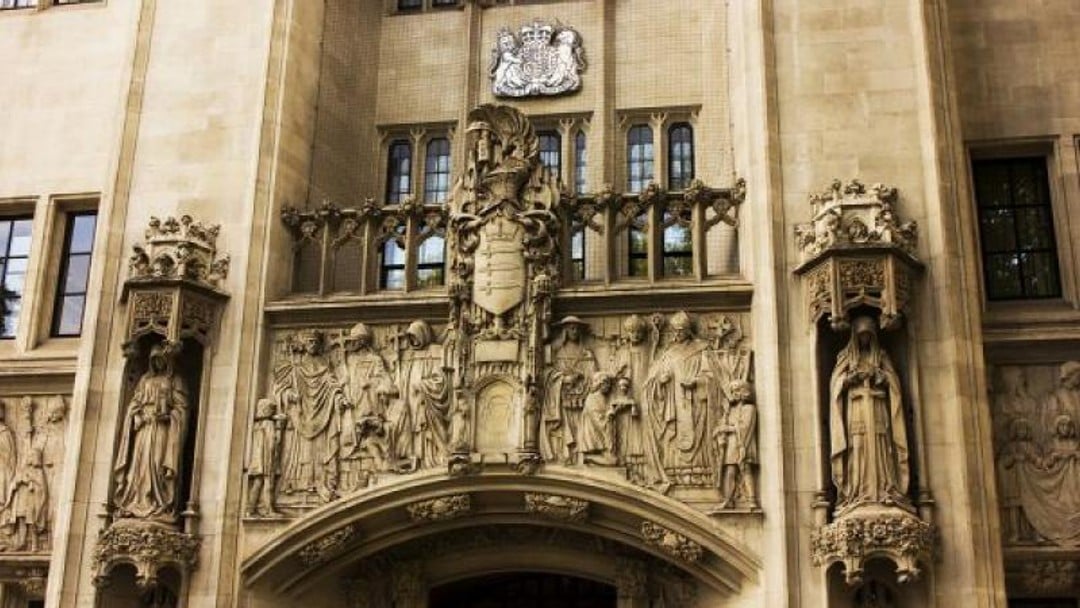Supreme Court: Parliament must have vote to trigger article 50

Consent of devolved governments in Scotland, Wales, and Northern Ireland not required
An Act of Parliament is required for the government to trigger Article 50 and withdraw from the European Union, the Supreme Court has held by an 8 to 3 majority in the case of R (Miller) v Secretary of State for Exiting the European Union.
In a case of unprecedented constitutional significance, the UK’s highest court upheld the High Court’s decision in the case and ruled in favour of claimants, investment banker Gina Miller, and hairdresser Deir Dos Santos.
Giving the lead judgment, Lord Neuberger, with whom Lady Hale and Lords Mance, Kerr, Clarke, Wilson, Sumption and Hodge agreed, said that the terms of the European Communities Act 1972 were ‘inconsistent’ with prerogative powers that ministers had claimed could facilitate the withdrawal from EU Treaties without parliament’s approval.
Explaining the majority’s view, the Supreme Court’s president said ‘Section 2 of the 1972 Act provides that, whenever EU institutions make new laws, those new laws become part of UK law. The 1972 Act therefore makes EU law an independent source of UK law, until Parliament decides otherwise.
‘Therefore, when the UK withdraws from the EU Treaties, a source of UK law will be cut off. Further, certain rights enjoyed by UK citizens will be changed. Therefore, the Government cannot trigger Article 50 without Parliament authorising that course.’
However, dissenting judge, Lord Reed, with whom Lord Carnwath and Lord Hughes agreed, said the effect which parliament had given to EU law in the UK under the 1972 Act was ‘inherently conditional on the application of the EU treaties to the UK, and therefore on the UK’s membership of the EU’.
‘The Act imposes no requirement, and manifests no intention, in respect of the UK’s membership of the EU. It does not, therefore, affect the Crown’s exercise of prerogative powers in respect of UK membership.’
The judges were unanimous in deciding that the consent of devolved governments in Scotland, Wales, and Northern Ireland will not be required as relations with the EU are reserved to the UK government and parliament only.
Reacting to today’s ruling, Gina Miller, who brought the case against the government, said: ‘No prime minister or government can expect to be unanswerable or unchallenged. Parliament alone is sovereign.
‘There is no doubt that Brexit is the most divisive issue of a generation. But this case has been about legal process not politics. Today’s decision has created legal certainty, based on our democratic process, and provided the legal foundations for the Government to trigger Article 50 in line with our constitution.’
Mishcon de Reya, Miller’s lawyers, said: ‘As lawyers, we believe in the rule of law, the separation of powers and the independence of the judiciary. This case has seen challenges to each of these principles we hold dear. We are proud that today the strength and primacy of those principles has been restated by the highest judges in the land.’
David Greene, senior partner of Edwin Coe, who acted for Deir Dos Santos, the second respondent, said his client was ‘delighted’ with the judgment.
‘As a Brexiteer, he always said his motivation in bringing this claim was to ensure the correct and lawful process applied to triggering Article 50 and today’s decision vindicates his role in shining a spotlight on the rightful process as well as the role that the law plays in ensuring a lawful political process.’
Speaking on the steps of the Supreme Court, the attorney general, Jeremy Wright QC, said: ‘The government is disappointed with the outcome but we have the good fortune to live in a country where everyone, every individual, every organisation, even government, is subject to the rule of law. So the government will comply with the judgment of the court and do all that is necessary to implement it.’
Also reacting to the judgment, Lord Chancellor Elizabeth Truss said: ‘Our independent judiciary is the cornerstone of the rule of law and is vital to our constitution and our freedoms. The reputation of our judiciary is unrivalled the world over, and our Supreme Court justices are people of integrity and impartiality.
‘While we may not always agree with judgments, it is a fundamental part of any thriving democracy that legal process is followed. The government has been clear that it will respect the decision of the court.’
Matthew Rogers is a reporter at Solicitors Journal
matthew.rogers@solicitorsjournal.co.uk | @lex_progress
